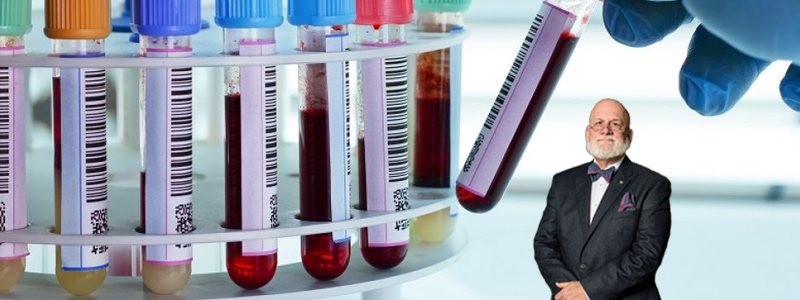Let’s Talk Hypothyroidism
Many people are walking around with low levels of thyroid hormone (referred to a hypothyroid). They’re tired, cold, lack energy, have dry skin, and so on. But when they visit a doctor, the laboratory tests often reports there isn’t a problem. They know they aren’t fully healthy, but the test disagrees. Doctors know about measuring TSH (thyroid stimulating hormone). Most of them believe that elevated TSH means underactive thyroid. The modern treatment approach is a prescription for levothyroxine (Trade Name Synthroid – aka, T4).
Daily doses of T4 will usually cause TSH levels to drop to the normal range. That tells the doctor the problem is fixed. Unfortunately, their patients often disagree. They still complain of low thyroid symptoms.
What good is it to have normal lab values if there are complaints? Here’s a link to an article at Mayo Clinic that explains underactive thyroid.
All too often modern medical wisdom suggests the patient “ought to learn to live with the symptoms.” Can that be the best answer? Of course not.
A better approach is to work with health providers who want to help locate and correct underlying causes.
Liothyronine (T3) is the active thyroid hormone, and it is produced in the body from T4. Yes, T4 lowers TSH, but the symptoms remain because the body is not efficiently converting T4 to T3.
Legitimate Thyroid Replacement
Traditionally, doctors prescribed products made from actual dried porcine (pork) thyroid glands – Armor Thyroid.
Over time there have been repeated difficulties obtaining the natural glands and getting FDA approval. An alternative is to prescribe two different thyroid products, T4 (levothyroxine or Synthroid) once daily and T3 (liothyronine or Cytomel) two to three times daily.
A Compounded Alternative
Another alternative to natural thyroid or a combination of pills would be a compounded preparation that contains T4 and T3 in the same capsule. They can efficiently replace the necessary thyroid hormones – and the doses can be easily adjusted at refill time.
How will a doctor know what dose of T3 they should prescribe? This might take a short time to find. Here’s where a good compounding pharmacist can help. Begin with a low dose (equivalent to a quarter grain of the natural thyroid product) and work up every thirty to 60 days – until the patient reports an improvement in symptoms. The compounding pharmacist has experience the doctor can call upon to make the appropriate dose selections.
It’s good to begin with T4 and T3 doses equivalent to the common thyroid extract products. The beauty of a compounded preparation is that there is no need to always adhere to the average ratios in natural desiccated thyroid products. The doctor can prescribe more T3 or less T4 with each refill. The compounding pharmacist knows how to make the perfect adjustments.
Both T3 (liothyronine) and T4 (levothyroxine) are available to the compounding pharmacist as bio-identical hormone products, meaning they are identical in every way to the thyroid hormones naturally made in the human body.
People experiencing low thyroid symptoms are encouraged to talk to their doctors to help them get thyroid replacement.

